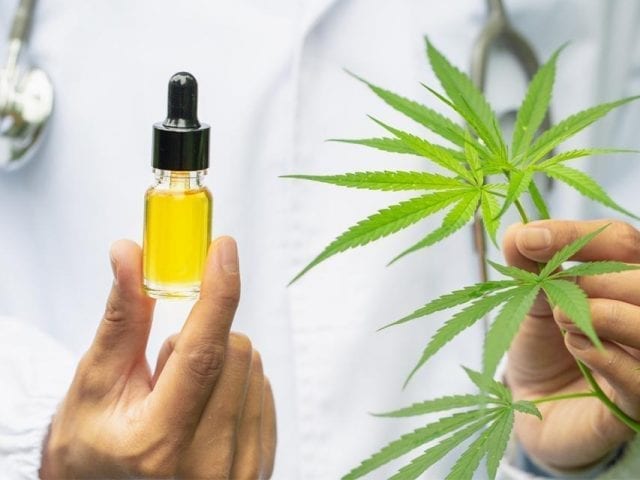What is CBD?
Cannabidiol (CBD) is a chemical substance in the Cannabis sativa plant.
- This plant, which contains more than 80 chemicals called cannabinoids, is also called marijuana or hemp.
- The two main ingredients in cannabis are tetrahydrocannabinol (THC) and CBD.
- THC is responsible for the intoxicating effects of cannabis and possibly contributes to the health benefits provided by the plant.
- Unlike THC, CBD is not intoxicating.
- Scientists believe that cannabinoids protect the cannabis plant against insects, bacteria, fungi, and stressful environmental factors.
- CBD appears to prevent the breakdown of a chemical in the brain that helps control pain, mood, and mental function.
CBD is available in the form of soft capsules, tablets, capsules, oils, chewing gum, liquid extracts, and vape liquids (for rechargeable electronic cigarettes).
- Some of these products contain CBD only and others contain CBD combined with other ingredients.
- The labels of many CBD-containing products offer incorrect information about the amount of CBD in the product, and sometimes the concentrations of CBD in the same product can be different. For example, one study found that only 31% of CBD products provided accurate information on labels; 43% contained more CBD than indicated on the label and 26% contained less than indicated on the label. In addition, THC (or marijuana) was found in 21% of the products
- (see also General food supplement considerations).

This plant, which contains more than 80 chemicals called cannabinoids, is also called marijuana or hemp.
The two main ingredients in cannabis are tetrahydrocannabinol (THC) and CBD.
THC is responsible for the intoxicating effects of cannabis and possibly contributes to the health benefits provided by the plant.
Unlike THC, CBD is not intoxicating.
Scientists believe that cannabinoids protect the cannabis plant against insects, bacteria, fungi, and stressful environmental factors.
CBD appears to prevent the breakdown of a chemical in the brain that helps control pain, mood, and mental function.
CBD is available in the form of soft capsules, tablets, capsules, oils, chewing gum, liquid extracts, and vape liquids (for rechargeable electronic cigarettes).
Some of these products contain CBD only and others contain CBD combined with other ingredients.
The labels of many CBD-containing products offer incorrect information about the amount of CBD in the product, and sometimes the concentrations of CBD in the same product can be different. For example, one study found that only 31% of CBD products provided accurate information on labels; 43% contained more CBD than indicated on the label and 26% contained less than indicated on the label. In addition, THC (or marijuana) was found in 21% of the products
(see also General food supplement considerations).
What is claimed about CBD?
The only use of CBD that is generally recognized as being safe and effective is in the treatment of certain seizure disorders. However, some people use CBD to treat many other health problems, such as:
- Bipolar disorder
- Pain
- Anxiety
- Crohn’s disease
- Diabetes
- Sleep Problems
- Multiple Sclerosis
- Withdrawal symptoms from heroin, morphine, and other opioid drugs
Three studies have shown that a pure CBD-based product, available only by prescription, reduces seizures in adults and children with two rare forms of epilepsy. In these studies, people were treated with the CBD-based product for 14 weeks while continuing to take other anticonvulsant medications. CBD treatment decreased the number of seizures and reduced their frequency and severity.
Research on other claimed health benefits for CBD includes studies that are of poor quality and/or were conducted on a small number of people.
In one small study, CBD appeared to reduce anxiety and craving symptoms in abstinent people who had heroin use disorder.
Another small study noted that in people treated with antipsychotic medications for schizophrenia, CBD reduced symptoms of psychosis according to Vizioncenter.
Several retrospective and observational studies suggest that CBD may have beneficial effects in certain clinical conditions, including pain, anxiety, sleep problems, and colitis. However, other evidence suggests that at most, these benefits are modest, and these studies have important limitations (e.g. inconsistent results for different studies, and lack of comparison with a placebo).
